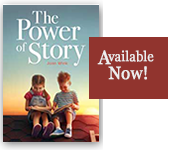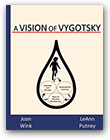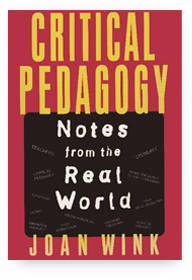To Make a Difference
One of the most important lessons that I have ever learned from educators is always to leave them with one final method, something that they can do tomorrow in their own schools and communities. This, then, is my last activity. Critical pedagogy has been assigned many esoteric and abstract meanings, most of which have enriched my life as a teacher and a learner. This critical perspective will continue to drive my own relearning and unlearning.
Most of us went into education “to make a difference.” For many, this phase soon became just another reason to be cynical. Critical pedagogy has not only taken this cynicism away from me, it has given me hope. It has led me to believe that I really can make a difference. Conscientization. Self and social transformation. Empowerment. Problem posing. Praxis. Action. They are no longer words to learn; they are no longer things I do; now, they are ideas I strive to live every day.
Bob
Recently, I have been hearing a story about a particular teacher. In fact, I have heard four different versions of the same story. I will tell the story the way I heard it the first time, although I have since discovered what I assume to be the source of the original story (Bridges, 1993). It seems this teacher decided she would make one small change in her teaching. It would not cost anything. She would not have to ask permission from an administrator. It would not take much of her time. She would not have to go to meetings at night, write a document, and seek the school board’s permission. It was just one small change. Maybe, just maybe, she could make a difference.
On the Blue Ribbon Day, she took her time as she expressed her appreciation for each student’s distinctive gift to the class and to her life. The students were silent as she spoke and as she pinned a blue ribbon on each shirt right above the heart. She was astounded at the reaction of her students. Some of them had never heard such sincere and honest praise. Many tears and shy smiles expressed their feelings. After the blue ribbon ceremony, she told the class that they had to leave with two more ribbons so they, too, could express their appreciation to someone in their life.
Eventually, one of these blue ribbons made its way to a young junior executive, Bob, at a large company. He agonized what he should do with his. He was the supervisor for many employees. He went through each name and finally decided he had to give the blue ribbon to his boss, Paul Long, who had a reputation for being unapproachable, elitist, and grumpy. Everyone, including the junior executives, avoided him.
With butterflies in his stomach, he knocked on the office door of the CEO.
“Come in,” Mr. Long grumbled. It was clear to Bob that his boss was distracted, busy, and did not want to be disturbed.
“Mr. Long, I am here to tell you that I appreciate you as the visionary leader of this company. Without your forethought and planning, we would never be able to succeed in this business. You make a difference in my life, and you make a valuable contribution in this community. I would like permission to reach across your desk and pin a blue ribbon on your shirt.” Bob pinned the I Make a Difference blue ribbon on the pocket of his CEO.
Paul was speechless. He finally managed to mumble his appreciation.
“Mr. Long, here is another blue ribbon. You need to pin it on someone who has made a difference in your life,” Bob said as he placed a second blue ribbon on Paul’s large desk.
Bob left the office with a sense that he had chosen the right person and Paul Long went home to his family. He did not mention what had happened at work that day. His family did not notice his silence because it was his custom to eat dinner and then to talk on the phone in his den. However, tonight Paul was thinking about who should receive his blue ribbon. He finally decided.
He walked down the hallway to his son’s bedroom. His son, Paul, Jr., was seventeen years old.
“Son, I know that I often don’t speak honestly with you. I know that I am often too busy. But, I want you to know that you make all the difference in my life.” As he said this, Paul, Sr. reached over and pinned the I Make a Difference blue ribbon on Paul, Jr.
His son began to cry and was soon sobbing. His head hung and his shoulders were heaving up and down with each sob.
“Son, what is the matter?” his dad said.
“Dad, no one ever told me that I make a difference. I had been planning on committing suicide tomorrow, and now I don’t have to do it.”






